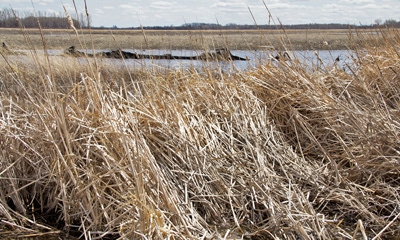
In July 2011, the U.S. Department of Justice (DOJ) believed that a farmer in California discharged pollutants into more than 100 acres of Waters of the United States in Tehama County, without a permit. In May, the District Court denied Mr. LaPant’s motion to dismiss the case.
The court claims the “...alleged discharge resulted from ‘tractor tilling’ on or near wetlands that are contiguous to Coyote Creek which flows into a traditional navigable water, the Sacramento River.”
You may have trouble understanding “tractor tilling.” It appears the U.S. Army Corps of Engineers (Corps) staff observed Roger LaPant, Jr., the defendant, disking or chisel plowing his ground. Here’s the background on the case.
Isn’t agriculture exempt?
Most in agriculture have assumed that such tilling of the ground was exempt from the Clean Water Act (CWA). But the Corps requested not EPA but the DOJ to sue Mr. LaPant.
First question: why is neither the Corps nor EPA’s name on the caption of the lawsuit?)
The DOJ sued LaPant, Jr., J & J Farms, Goose Pond Ag, Inc. and Farmland Management Services. Mr. LaPant and his counsel said the U.S. District Court did not have jurisdiction over this matter.
The Court’s reasoning should generate grave concern for farmers.
Whose jurisdiction is it?
It involves a jurisdictional dispute as to whether the United States, through the Department of Justice, can sue any farmer on the recommendation of the Corps -- or must there be a specific recommendation from EPA in the CWA to sue the farmer?
The District Court judge declares that a general statute passed by Congress “...provides an independent basis for [court] jurisdiction where the United States is plaintiff.” Mr. LaPant and his co-defendants argued that only EPA and not the Corps or the United States must commence a suit where there is no permit. The defendants also argue “absent the [EPA] administrators’ commencement of the action, either directly or by request to the Attorney General, Section 1319 (b) does not confer jurisdiction over this suit in this Court.” Defendants further claim the United States must be acting at the request of the proper agency. Apparently in this case EPA did not determine CWA jurisdiction. The Corps did. This issue has arisen before and was addressed by Attorney General opinion 197 in 1979. The opinion known as the Civiletti Memorandum declared that EPA, rather than the Corps, has the ultimate authority to construe what is a navigable water.
The 1979 Memorandum makes it clear the Attorney General does not make a determination of CWA jurisdiction, nor does the Corps. Defendant LaPant argues the United States can only bring a CWA lawsuit “...where the United States is acting at the request of the [EPA] Administrator...”
The language in the statute seems clear, but the judge in this case claimed he did not see that the DOJ general authority was nullified by the grant to EPA. Most CWA lawyers believe the United States can sue only upon authorized agency request. The Department of Justice and this judge agree that the United States and the Corps is a distinction without a difference.
Going around EPA
Once again, it would be helpful to agriculture to have a judge and Department who follow the law.
The Court claimed it could not presume (a judge should not presume anything) that Congress had repealed the DOJ’s jurisdiction under the Clean Water Act “...to ensure that the EPA, and only the EPA, may refer “unpermitted” discharges to the United States for enforcement actions.”
The Court in the LaPant case has given DOJ and the Corps unlimited power to pursue farmers. It has been the general belief of many CWA practitioners (including this one) that only EPA could pursue an alleged discharger not having a permit.
The Corps has always had the authority to pursue discharges with a permit if there was a violation. The argument is a U.S. District Court lacks jurisdiction against this farmer if the suit was brought directly by the Corps. The Court said it did not need to reach this issue. Now DOJ, Corps and EPA can sue a farmer for violating the CWA by tilling an alleged “wetland.”
The opinions of the author are not necessarily those of Farm Futures or Farm Progress.
About the Author(s)
You May Also Like




